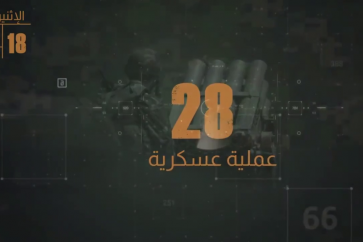Iranian Foreign Ministry Spokesman Bahram Qassemi has slammed that the United States’ move to impose an aerial blockade on buses carrying women and children as part of a deal between the Lebanese Hezbollah resistance movement and ISIL Takfiri terrorists.
“The US move to lay a siege to women and children given the country’s history of cooperation with Daesh [terrorist group] is regarded as an illogical issue,” Qassemi said on Sunday.
“Iran believes that this is an attempt to negatively impact the victory of the Lebanese government and the resistance movement,” he added.
There is a “fundamental difference” between fighting armed ISIL terrorists and the killing of innocent people, he said.
He added that imposing a blockade on a number of women and children in a desert by the US has no military value and would not diminish ISIL terrorists’ power but would stoke more violence in the region.
“The aerial siege against women and children in non-military buses and the killing of a number of pregnant women over the past two days may turn into a humanitarian disaster if continued,” Qassemi said, warning that this could further spread violence across the region.
He went on to say that ISIL is nearing a complete collapse due to cooperation among the Iranian, Syrian, Lebanese and Iraqi governments and their armies and added that the fight against the terrorist group is forcefully ongoing to eradicate terrorism in Syria and Iraq.
The Iranian spokesperson also welcomed and expressed the country’s support for the humanitarian efforts by the Lebanese government and Hezbollah to save innocent civilians, saying the move turned Lebanon’s military victory into an even bigger one.
“The Islamic Republic of Iran, as a country which is at the forefront of the confrontation against terrorism, particularly Daesh, asks the United Nations to intervene in this issue and prevent the killing of innocent people,” Qassemi said.
The Syrian government on August 27 agreed to a deal between Hezbollah and ISIL Takfiri terrorists, which allows the transfer of the latter from the strategic and mountainous region of Qalamoun close to the border with Lebanon to eastern Syria.
Source: Press TV




